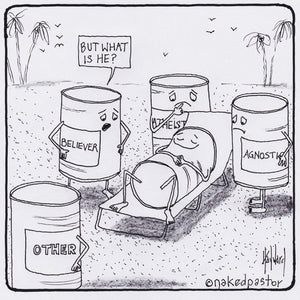Would you say that identity is more about that which is “given” to us in view of sociocultural constructions (including community belonging, religion, nation, etc.)? Or, is it rather something continuously evolving?
Usually this topic relies on the line of questioning referring to “what” we are and "what" we become – could it be that the more appropriate approach is “how” our identity is forged?
Is the issue of identity a matter of a choice?
These questions are only hypothetical for exploring the topic – of course, you're welcome to reply from your own perspective Given that we all come from very different paths of life, it would be interesting to bring together different approaches and get better understanding of our personal views too.
Given that we all come from very different paths of life, it would be interesting to bring together different approaches and get better understanding of our personal views too.
Usually this topic relies on the line of questioning referring to “what” we are and "what" we become – could it be that the more appropriate approach is “how” our identity is forged?
Is the issue of identity a matter of a choice?
These questions are only hypothetical for exploring the topic – of course, you're welcome to reply from your own perspective


